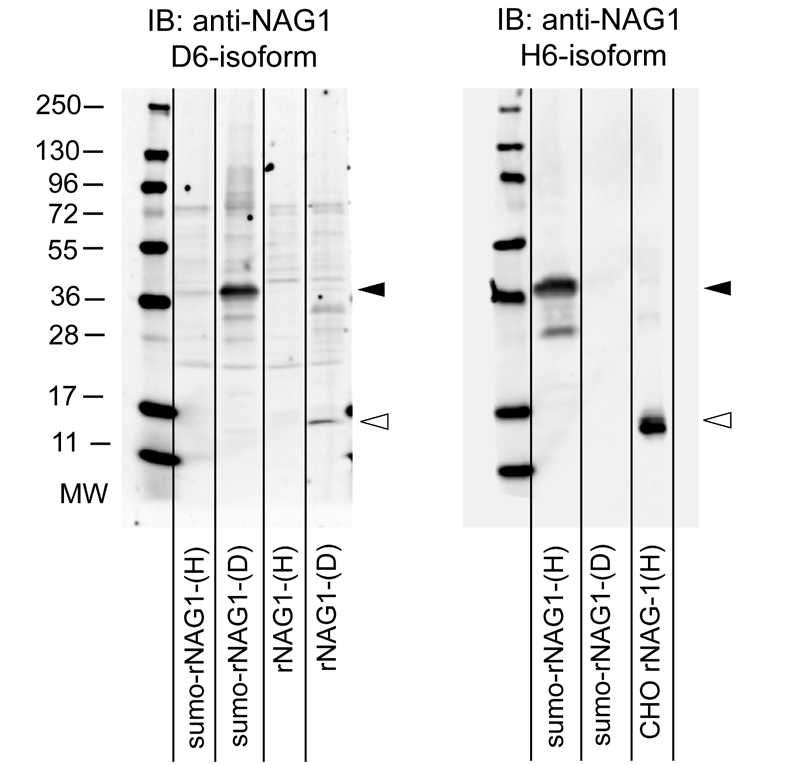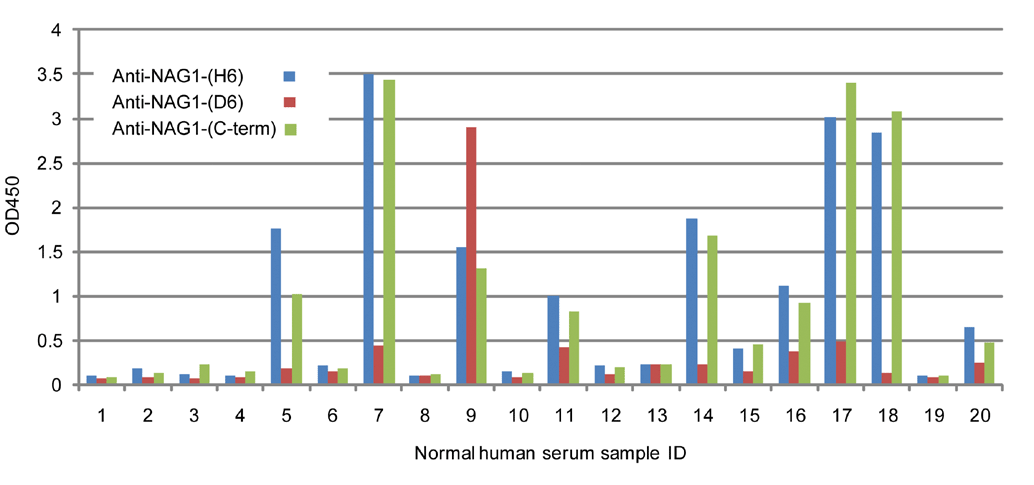Putative prostate cancer (PCa) biomarker NAG detection is possible with H6D polymorphism monoclonal and polyclonal antibodies
The nonsteroidal anti-inflammatory drug-activated gene (NAG1) also referred to as GDF-15 or MIC-1, is a member of the TGF-β superfamily of cytokines. NAG1 is implicated in prostate cancer, and levels of NAG1 protein in the serum of patients with metastatic prostate carcinomas are significantly higher than those from patients with breast and colorectal carcinomas. A correlation of the most common and well-characterized position 6 histidine-to-aspartate (H6D) polymorphism is associated with sporadic and familial cases of PCa, and the allelic H6D variation of NAG1 is an independent predictor of the presence of metastasis.
Western Blot Data
Polyclonal anti-human NAG1 (C-terminal epitope specific), and polyclonal (H6) and (D6) variant specific antibodies were tested for specificity for NAG1. Recombinant NAG1 (H6) variant or NAG1 (D6) variant protein were independently expressed in Pichia pastoris. The crude mixtures of yeast protein containing either NAG1 (H) or NAG1 (D) were separated in SDS-PAGE and blotted to nitrocellulose. The blots were probed with anti-NAG1 (H) or anti-NAG1 (D).

We have successfully produced monoclonal antibodies that can bind monomeric and dimeric NAG1 and distinguish between the NAG1 H6/D6 polymorphism. Preliminary data for the development of an ELISA assay for the detection of NAG1 in serum, and for the capture and detection of polymorphic variant forms (H6) and (D6) of NAG1 shows promising initial results.

Further optimization of assay reagents and a broader sample basis may result in a validated assay to screen for and profile NAG1 variant forms in human serum samples. These reagents, along with additional antibodies we produced against mouse NAG1 will facilitate the further investigation of this import protein as it relates to a number of diseases, conditions and animal model systems.
Rockland intends to make these reagents available globally through its extensive distributor-based distribution network. “We expect considerable interest in a new putative biomarker that could supplement or replace the existing PSA serological assay for prostate cancer,” said Carl Ascoli, Laboratory Director and CSO of Rockland. “Given the importance of early detection, the probability of false positive readings with the current PSA based FDA approved assay and the number of tests that are performed annually in the U.S. alone, an alternative assay to screen for prostate cancer that detects NAG1 polymorphisms should be of considerable interest to the research and diagnostic communities.”